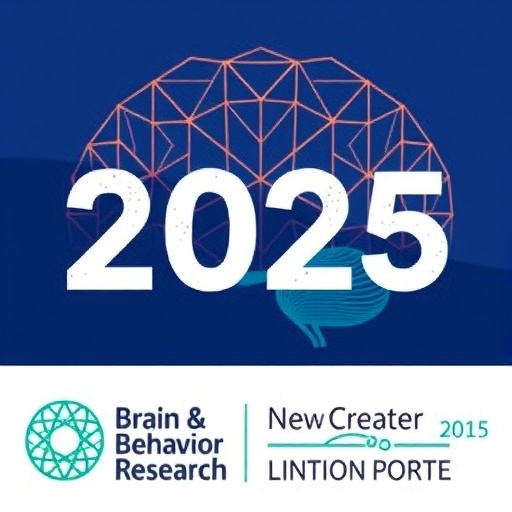The Brain & Behavior Research Foundation is set to host its much-anticipated 2025 International Mental Health Research Symposium on Friday, October 24th, marking a pivotal event in the landscape of psychiatric and neurological research. Scheduled from 9:30 am to 12:30 pm Eastern Daylight Time, this symposium will take place at the prestigious Kaufman Music Center located at 129 West 67th Street, nestled between Broadway and Amsterdam in Manhattan. This event promises to serve as a dynamic forum for the dissemination and discussion of cutting-edge scientific advancements in mental health disorders.
As mental health challenges continue to exert a profound global impact, this symposium emerges as a critical venue where leading neuroscientists, clinical psychologists, and psychiatric researchers converge. They will explore the latest empirical findings and theoretical frameworks, particularly focusing on disorders such as Attention Deficit Hyperactivity Disorder (ADHD), schizophrenia, and bipolar disorder. The event is uniquely designed to foster interdisciplinary dialogue, bridging basic science with clinical application, and thereby accelerating translational research that could precipitate novel therapeutic strategies.
The symposium’s agenda underscores the growing complexity and heterogeneity of neuropsychiatric disorders. Recent genetic, neuroimaging, and biomarker studies reveal a multifactorial pathology that challenges traditional categorical diagnoses. Presenters are expected to delve deep into neurobiological substrates, synaptic pathophysiology, and the intricate interplay of genetic and environmental influences shaping mental illness trajectories. This nuanced understanding is crucial as it underpins efforts to stratify patients for precision medicine approaches, enhancing treatment efficacy and minimizing adverse effects.
Moreover, the event will highlight advancements in neurodevelopmental disorder research, with a particular focus on ADHD. Cutting-edge longitudinal cohort studies dissect the neurocognitive and behavioral profiles of affected individuals, elucidating the roles of executive function deficits, neural connectivity anomalies, and neurotransmitter dysregulation. Such findings critically inform the development of pharmacological and non-pharmacological interventions, including cognitive-behavioral therapies and neuromodulation techniques, which are tailored to individual neurobiological patterns.
Integral to the symposium’s discourse will be schizophrenia, a disorder long shrouded in complexity due to its diverse symptomatology and variable disease course. Current research presented at the event is expected to encompass advancements in identifying biomarkers for early diagnosis and prognosis, alongside studies targeting synaptic pruning abnormalities and glutamatergic system dysfunctions. Investigations into the interplay between neuroinflammation and oxidative stress stand to offer innovative molecular targets, representing a paradigm shift away from dopamine-centric models.
Bipolar disorder, another focal topic, will be dissected through the lens of circadian rhythm disruption, neuroplasticity, and mitochondrial function impairment. Presentations promise insights into mood regulation mechanisms, neurogenesis, and the influence of epigenetic modifications on disorder onset and progression. Such in-depth exploration is crucial for the conceptualization of mood stabilization strategies and the refinement of existing mood disorder pharmacotherapies.
Beyond diagnosis and treatment, the symposium will address the emergent theme of mental health advocacy and policy impact. Scientists and advocates will discuss the ethical implications of genetic research and neurotechnology, as well as the societal stigma that continues to hinder mental health care accessibility. The cross-sector collaboration encourages evidence-based policy development aimed at integrating mental health into broader public health frameworks, advocating for destigmatization, and enhancing global mental health outcomes.
An innovative feature is the symposium’s hybrid attendance model, facilitating participation both in-person and virtually. This accessibility underscores the Brain & Behavior Research Foundation’s commitment to inclusivity, ensuring a wider dissemination of scientific knowledge and fostering a global community of mental health researchers, clinicians, patients, and advocates. The interactive format allows for real-time virtual engagement, promoting cross-continental collaboration which is indispensable in addressing the worldwide mental health crisis.
The integration of technological advancements will also be spotlighted, with discussions centered around the utility of machine learning, artificial intelligence, and big data analytics in mental health research. These tools hold transformative potential for patient stratification, predictive modeling, and the personalization of treatment regimens. Cutting-edge computational methods are beginning to unravel the complex data matrices of brain imaging and genomic studies, heralding a new era of precision psychiatry.
Further, the symposium will delve into the role of neuroplasticity and its therapeutic harnessing through emerging strategies like transcranial magnetic stimulation (TMS) and deep brain stimulation (DBS). Such neuromodulatory interventions, supported by rigorous scientific data, offer hope for treatment-resistant populations and signal a move towards more targeted, non-pharmacological solutions. Their mechanism of action, safety profiles, and long-term outcomes will be subjected to expert scrutiny and debate.
In conclusion, the 2025 International Mental Health Research Symposium by the Brain & Behavior Research Foundation stands as a beacon in the realm of mental health exploration. It offers a comprehensive platform where foundational research meets clinical innovation, and where multidisciplinary collaboration serves as the cornerstone for future breakthroughs. This event is not merely a symposium—it is a confluence of hope, scientific rigor, and human resilience aimed at unraveling the complexities of mental illness and transforming lives worldwide.
Attendees and interested parties are encouraged to register for this free event via the Brain & Behavior Research Foundation’s official website. By bringing together some of the brightest minds in psychological science and clinical psychology, the symposium is poised to influence the trajectory of mental health research and treatment profoundly, with reverberations that will enhance understanding and intervention strategies for years to come.
Subject of Research: Mental health disorders including ADHD, schizophrenia, and bipolar disorder; neurobiological research and therapeutic advancements.
Article Title: 2025 International Mental Health Research Symposium: Bridging Neuroscience and Clinical Innovation
News Publication Date: Not explicitly provided (Event date: October 24, 2025)
Web References:
https://bbrfoundation.org/event/international-mental-health-research-symposium
Keywords: Mental health, Psychological science, Clinical psychology, ADHD, Schizophrenia, Bipolar disorder, Neurobiology, Neuroimaging, Neuroplasticity, Neuropsychiatry, Biomarkers, Neuroscience research
Tags: 2025 International Mental Health Research SymposiumADHD research and treatmentadvances in mental health disordersAttention Deficit Hyperactivity Disorderbipolar disorder insightsBrain & Behavior Research Foundationgenetic studies in neuropsychiatryinterdisciplinary dialogue in mental healthneuroimaging and biomarkers in mental healthpsychiatric and neurological researchschizophrenia research advancementstranslational research in psychiatry





